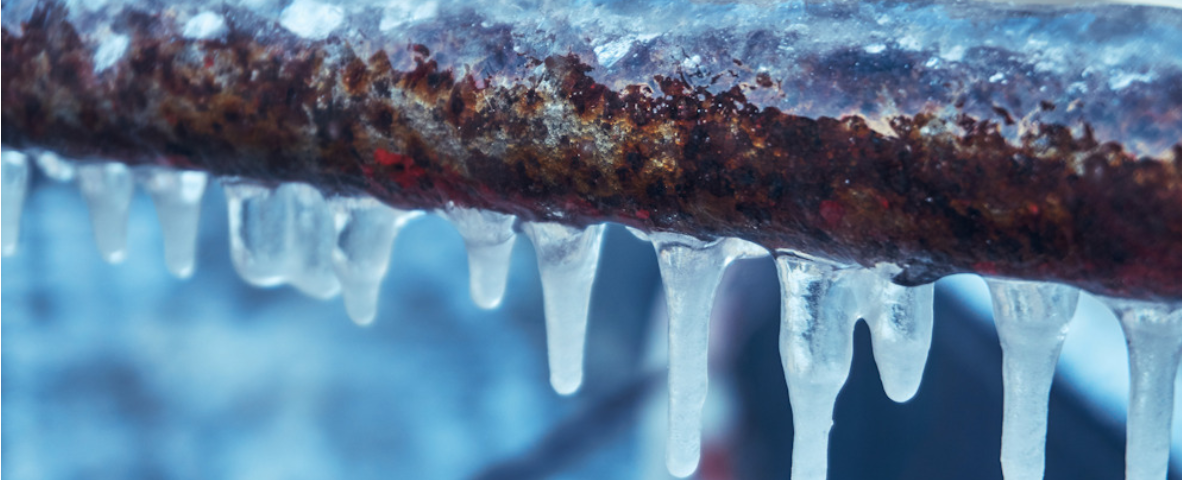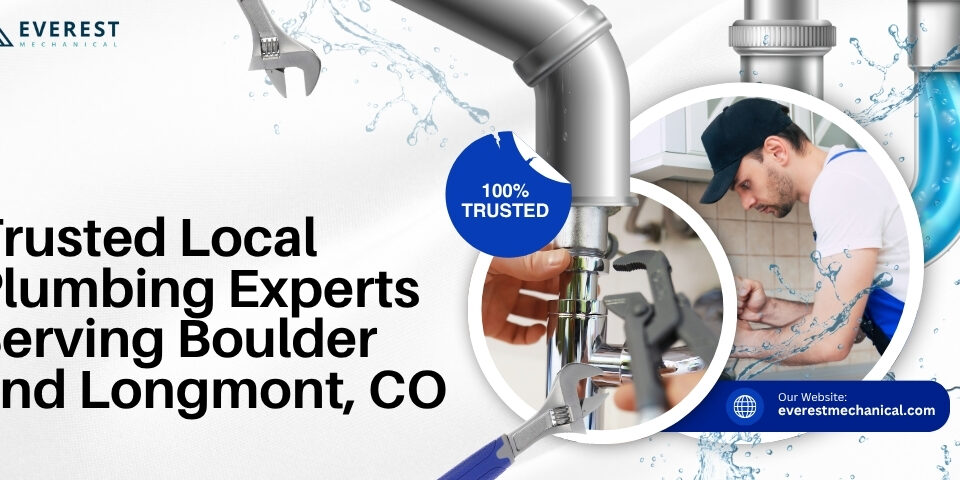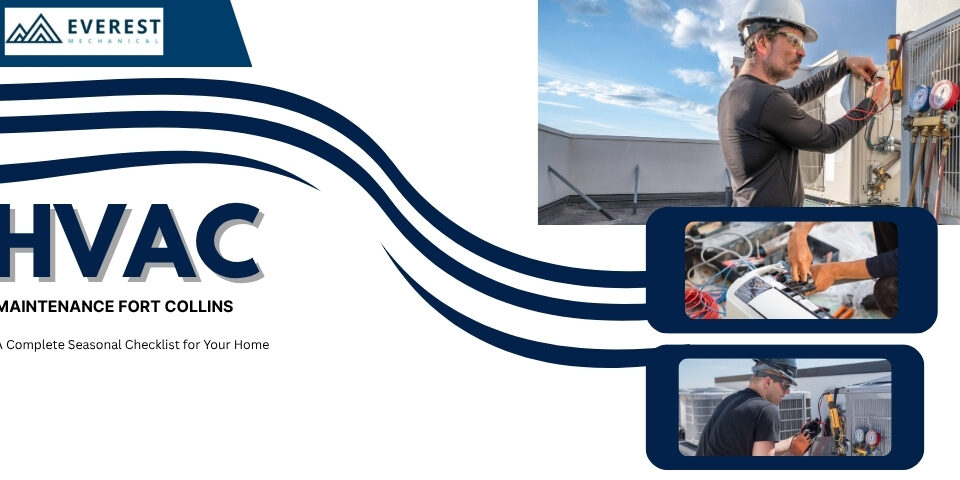- Servicing areas in and around: Estes Park, Longmont, Boulder, Arvada, Fort Collins, Denver, Loveland, and Lyons
- 8883880970
A comprehensive guide on winterization of the plumbing system

Which type of water heater is best for my home?
January 26, 2024
Essential Measures to Keep Longmont Home Warm and Cozy in Winters
February 17, 2024Winterization of the plumbing system can help prevent significant damage caused by frozen water inside pipes, and ensure the safety of the entire plumbing system in winter
The average temperature in Denver during the winter season can go as low as -7 degrees Celsius. This freezing temperature not only tests the human endurance but also that of the plumbing systems of Denver homeowners too. Apart from all the problems they are going through, they have an extra worry of frozen pipes and ensuing plumbing pandemonium.
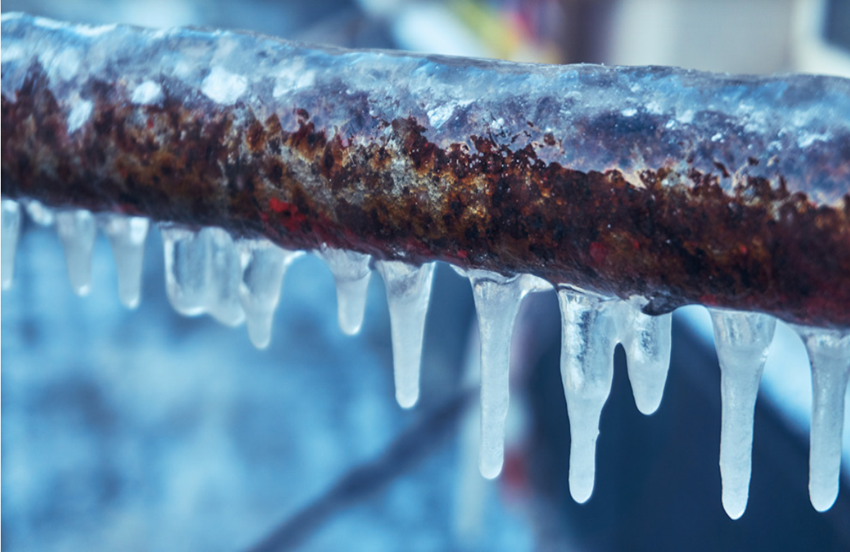
But they should worry not as in this comprehensive guide, we will let you know how with little preparation and know-how you can winterize your plumbing system like a seasoned plumbing services professional and ensure your pipes flow freely even in the freezing weather. Also, you can consult Denver plumbing services if you fear damaging your pipeline and other plumbing system during the winterization process.
Why Winterize?
Well, before you get to the main point, you must understand why it is necessary to winterize the plumbing system in Denver. The winterization process is very important to prevent the devastating effects of cold and freezing weather that can freeze the water inside the pipes. So, when water freezes, it expands which can lead to the bursting of pipes and significant water damage.
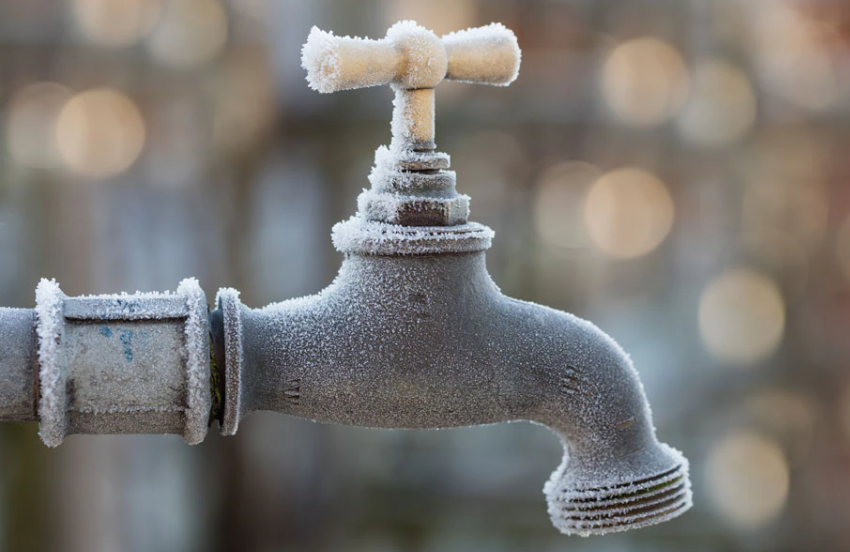
Winterization becomes even more important during the peak winter season for older properties, or vacant residents. This process not only helps save from costly repairs but also ensures there is uninterrupted water flow, and protects the belongings of your home from severe consequences of winter-related plumbing failures.
How Does Winter Affect the Plumbing System?
Many Denver homeowners are ignorant about the potential damage the winter season could bring to their home’s plumbing system. Here we have listed the main plumbing issues that can arise and need attention.
- When water inside pipes freezes, it expands, creating immense pressure and often causing pipes to burst. This can lead to water leakage, flooding, and structural damage to your home.
- Outdoor faucets are particularly vulnerable. If not properly winterized, the water trapped in these faucets can freeze and expand, damaging the faucet and connected pipes.
- Garden hoses left connected during winter can result in frozen water, affecting both the hose and the outdoor faucet.
- Toilet tanks, supply lines, and traps can freeze, leading to cracks or breakage. Similarly, water in the sink and bathtub traps may freeze, causing blockages and potential pipe damage.
- Water heaters are not immune to winter’s impact either. In colder climates, the water inside the tank may cool more quickly, especially if the thermostat is set too low, increasing the risk of freezing. Consequently, the tank may crack or rupture, necessitating costly repairs or replacement.
Winter’s low-temperature weather can damage more than you expect. So, with simple care and maintenance, costly repairs can be avoided.
DIY Winterization Tools You Will Need
So, when you are looking to winterize your home’s plumbing system, you need to have some common tools as your companion with you. These are easily available in every home and you should have them too.
- Insulating materials such as Foam pipe sleeves to shield exposed pipes from freezing temperatures
- Non-toxic antifreeze prevents trapped water in drain traps and toilets from turning into ice
- A wrench set is essential to locate and shut off the main water supply
- Hoses will help to drain water from various fixtures during winterization
- And faucet covers or insulation sleeves will be needed to protect outdoor faucets from freezing temperatures.
You will have most of these with you, but if not, you can easily get them in the nearest hardware store.
Steps To Successfully Winterize the Plumbing System
Now, let’s learn how to effectively winterize the plumbing system, step-by-step.
Outdoor Plumbing
- Disconnect and Drain Hoses
Begin by disconnecting any garden hoses attached to outdoor faucets. Hoses left connected can trap water, leading to freezing and potential damage. After disconnecting, allow residual water to drain completely.
- Protect Outdoor Faucets
Outdoor faucets are susceptible to freezing. Apply insulation sleeves or faucet covers to shield them from extremely cold temperatures. This protective layer prevents water inside the faucet and connecting pipes from freezing and causing damage.
Indoor Plumbing
- Shut Off the Water Supply
Locate the main water shut-off valve in your home and turn it off. This ensures that no water flows into the plumbing system during winter. By cutting off the water supply, you prevent the risk of frozen pipes and subsequent damage.
- Drain Water Lines
To eliminate the possibility of frozen water inside pipes, systematically drain water from various fixtures. This includes toilets, sinks, washing machines, and bathtubs. Ensure that no standing water remains in the lines, reducing the risk of ice formation.
- Use Non-Toxic Antifreeze
Provide an additional layer of protection by using non-toxic antifreeze in drain traps and toilets. This step ensures that even if small amounts of water remain, they won’t freeze, minimizing the risk of damage.
- Insulate Exposed Pipes
Utilize insulation materials to protect exposed pipes within your home. Focus on areas where pipes are more vulnerable to cold temperatures. Proper insulation helps retain heat and prevents pipes from freezing, reducing the likelihood of cracks or bursts.
Bonus Winterization Tips
- Adjust water heater settings by lowering the thermostat or activating ‘vacation’ mode as it will help prevent the water heater tank from freezing
- By opening the cabinet door, you can allow warm air to reach pipes under sinks and other enclosed spaces during winter
- Seal air leaks by closing gaps around windows, doors, and garage doors to prevent cold drafts. It will reduce the risk of freezing pipes.
- Constantly monitor the temperature for potential freezing conditions. In that case, you can take immediate action like increasing insulation if the temperature drops significantly.
Doing these simple yet effective things can enhance your winterization process and help you and your home’s plumbing system be safe during extreme Denver winters.
Take Help from Professionals
Finding the winterization process difficult? Well, do not worry. We at Everest Mechanical provide professional plumbing service in Denver including complete winterization solutions.
Our trained, and experienced plumbers will ensure your home’s plumbing system is as efficient after winter as they were before the arrival of the cold season. Just reach out to the below-mentioned contact details for any queries, suggestions, or consultation on winterization tips.


